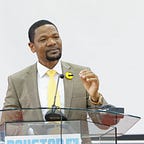We Must Participate in Climate-Driven Public Policy
“It is the tortoise’s shell, ugly and hard, that protects its lifelong journey on Earth”. This African proverb highlights the divide between public policy and its implementation in Africa. Public policy is the biggest driver of change, and the people who implement policy are ordinary Africans.
Regardless of their cutting edge, policies, institutions, regulations, and procedures will remain unrealized as long as ordinary citizens continue to relegate implementation to governments alone. Ordinary citizens are the proverbial tortoise’s shell to Africa’s economies. They are the missing link in making specific policies that already exist work as intended to improve the lives of ordinary Africans.
One area in which the public policy divide plays out spectacularly is in the climate change space. Africa has invested significantly in enabling legal and policy frameworks than Europe and North America. For example, 52 out of 54 countries in Africa have ratified their Nationally Determined Contribution (NDC), making Africa the most compliant region globally.
NDCs balance both mitigation and adaptation commitments. As countries submit their second-round commitments, 9 African countries have already submitted theirs, with 2 submitting more vital targets. Over 40 more have committed to enhancing their 2020 NDCs. Through internal policy prioritization, Africa has invested in climate resilience at a rate of about 2% of GDP every year. All of this is in addition to enabling sectoral policies, such as climate-smart agriculture policies.
What Africa needs to bridge the implementation divide is not development dollars alone. Still, a bold, visionary, and selfless citizenry to devise enterprise solutions to challenges that affect every corner of Africa. The catchment for this citizenry is the informal sector, which already accounts for over 80% of all employment in sub-Saharan Africa. Another catchment is African youth, which constitutes up to 60% of Africa’s population, making them the most significant non-state actor constituency in size. It urgently needs to be tapped to drive climate action policy forward.
#Innovativevolunteerism offers climate action solutions throughout Africa. Through innovative volunteerism, lessons accrued from youth in one corner of the continent are cross hybridized with willing actors in another corner of the continent without physical engagement. This is accomplished by leveraging on the passion and willingness of the volunteers themselves and digital technology. We see how this dynamic can play out practically but at a micro-level with this tool.
For example, Africa’s NDCs commitments include emissions reduction and resilience building elements. While Africa has contributed the least to global emissions, it is the most disproportionally vulnerable region globally. Through innovative volunteerism, young people are being structurally guided to step up to the plate, and implement elements of Africa’s NDC policy provisions, informed by socioeconomic realities. For example, most emissions from sub-Saharan Africa are land-based, accounting for up to 56%, driven by land degradation. Agriculture is a leading source of this degradation.
A significant portion of the land in Africa is cleared for agriculture. However, a substantial portion of the harvest ends as post-harvest losses, estimated to be close to $48 billion. This means the goods and services expended in producing this food is lost, fueling further land degradation. In addition, a myriad of income and enterprise opportunities that would have arisen from value addition to increase the socioeconomic resilience of communities are also lost.
However, these young people are being structurally guided to leverage their skills and passion for working with local farmers, clustering them into local cooperatives to leverage economies of scale, and decentralizing simple climate action solutions of solar dryers to enable value addition. These solar dryers enhance food safety by lowering incidents of dangerous aflatoxin by 53%, allowing the farmers to increase the shelf-life of perishables, thus cutting post-harvest losses to ensure efficient utilization of the ecosystem services used to produce the foods Africans consume.
From these practical steps, data has been generated on the financial, market, environmental, and social benefits of youth actions and the gaps that need to be addressed to sustain and upscale these successes. This data is then used to recalibrate policy and make it more implementable. For example, data showing solar dryers’ benefits, applicability, and popularity in preventing aflatoxins among informal food producers were used to recalibrate national food safety and food production standards to achieve specific food safety and production standards. This integration means that any actor willing to be certified in these standards must apply the solar dryers as a tool for compliance. And by this, we see climate-smart agriculture policies that address food security issues throughout Africa.
